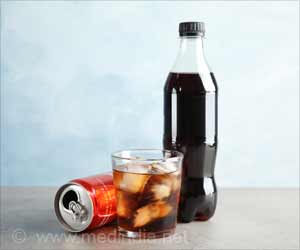Engaging in regular, moderate-intensity aerobic exercise offsets the decline in endothelial function following repetitive sugar-sweetened beverage consumption.

TOP INSIGHT
Engaging in regular, moderate-intensity aerobic exercise offsets the decline in endothelial function following repetitive sugar-sweetened beverage consumption.
In a new study, healthy young men with an average age of 22 drank three sugar-sweetened beverages daily for seven days. Each beverage contained roughly the amount of sugar consumed when drinking a 20- to 25-ounce soda. Half of the participants also participated in 45-minute moderate-intensity cycling sessions five days a week. Before and after the trial period, the research team measured the participants’ blood sugar levels, blood pressure and endothelial function in the upper arm.
Blood sugar levels and blood pressure did not change in either the exercise or non-exercise groups. Blood vessel dilation was reduced—signifying endothelial dysfunction—in the non-exercisers after the week-long trial, but it was increased in the men who exercised. “Our data highlight the importance of exercise in preventing endothelial dysfunction induced by high-sugar diets common in Western culture.”
Read the full article, “Aerobic exercise offsets endothelial dysfunction induced by repetitive consumption of sugar-sweetened beverages in young healthy men,” published ahead of print in the American Journal of Physiology-Regulatory, Integrative and Comparative Physiology.
Source-Newswise
 MEDINDIA
MEDINDIA




 Email
Email










